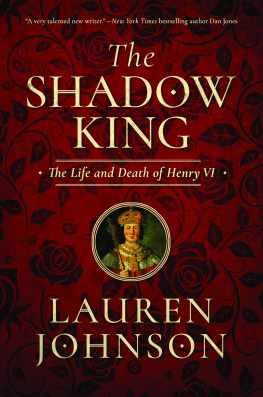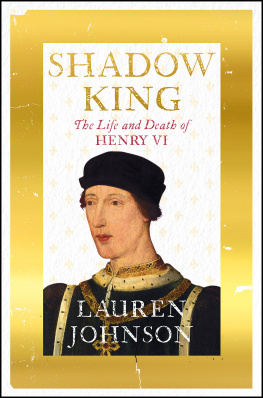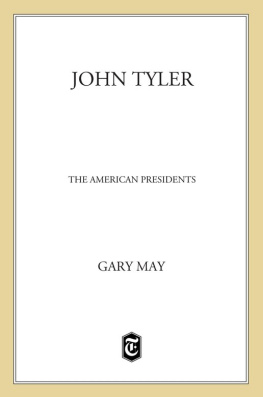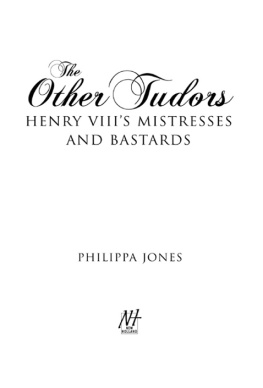PREFACE.
Memoirs such as these of Henry of Monmouth might doubtless be made more attractive and entertaining were their Author to supply the deficiencies of authentic records by the inventions of his fancy, and adorn the result of careful inquiry into matters of fact by the descriptive imagery and colourings of fiction. To a writer, also, who could at once handle the pen of the biographer and of the poet, few names would offer a more ample field for the excursive range of historical romance than the life of Henry of Monmouth. From the day of his first compulsory visit to Ireland, abounding as that time does with deeply interesting incidents, to his last hour in the now-ruined castle of Vincennes;or rather, from his mother's espousals to the interment of his earthly remains within the sacred precincts of Westminster, every period teems with animating suggestions. So far, however, from possessing such adventitious recommendations, the point on which (rather perhaps than any other) an apology might be expected for this work, is, that it has freely tested by the standard of truth those delineations of Henry's character which have contributed to immortalize our great historical dramatist. The Author, indeed, is willing to confess that he would gladly have withdrawn from the task of assaying the substantial accuracy and soundness of Shakspeare's historical and biographical views, could he have done so safely and without a compromise of principle. He would have avoided such an inquiry, not only in deference to the acknowledged rule which does not suffer a poet to be fettered by the rigid shackles of unbending facts; but from a disinclination also to interfere, even in appearance, with the full and free enjoyment of those exquisite scenes of humour, wit, and nature, in which Henry is the hero, and his "riotous, reckless companions" are subordinate in dramatical excellence only to himself. The Author may also not unwillingly grant, that (with the majority of those who give a tone to the "form and pressure" of the age) Shakspeare has done more to invest the character of Henry with a never-dying interest beyond the lot of ordinary monarchs, than the bare records of historical verity could ever have effected. Still he feels that he had no alternative. He must either have ascertained the historical worth of those scenic representations, or have suffered to remain in their full force the deep and prevalent impressions, as to Henry's principles and conduct, which owe, if not their origin, yet, at least, much of their universality and vividness, to Shakspeare. The poet is dear, and our early associations are dear; and pleasures often tasted without satiety are dear: but to every rightly balanced mind Truth will be dearer than all.
It must nevertheless be here intimated, that these volumes are neither exclusively, nor yet especially, designed for the antiquarian student. The Author has indeed sought for genuine information at every fountain-head accessible to him; but he has prepared the result of his researches for the use (he would trust, for the improvement as well as the gratification,) of the general reader. And whilst he has not consciously omitted any essential reference, he has guarded against interrupting the course of his narrative by an unnecessary accumulation of authorities. He is, however, compelled to confess that he rises from this very limited sphere of inquiry under an impression, which grew stronger and deeper as his work advanced, that, before a history of our country can be produced worthy of a place among the records of mankind, the still hidden treasures of the metropolis and of our universities, together with the stores which are known to exist in foreign libraries, must be studied with far more of devoted care and zealous perseverance than have hitherto been bestowed upon them. That the honest and able student, however unwearied in zeal and industry, may be supplied with the indispensable means of verifying what tradition has delivered down, enucleating difficulties, rectifying mistakes, reconciling apparent inconsistencies, clearing up doubts, and removing that mass of confusion and error under which the truth often now lies buried,our national history must be made a subject of national interest. It is a maxim of our law, and the constant practice of our courts of justice, never to admit evidence unless it be the best which under the circumstances can be obtained. Were this principle of jurisprudence recognised and adopted in historical criticism, the student would carefully ascend to the first witnesses of every period, on whom modern writers (however eloquent or sagacious) must depend for their information. How lamentably devoid of authority and credit is the work of the most popular and celebrated of our modern English historians in consequence of his unhappy neglect of this fundamental principle, will be made palpably evident by the instances which could not be left unnoticed even within the narrow range of these Memoirs. And the Author is generally persuaded that, without a far more comprehensive and intimate acquaintance with original documents than our writers have possessed, or apparently have thought it their duty to cultivate, error will continue to be propagated as heretofore; and our annals will abound with surmises and misrepresentations, instead of being the guardian depositories of historical verity. Only by the acknowledgment and application of the principle here advocated will England be supplied with those monuments of our race, those "POSSESSIONS FOR EVER," as the Prince of Historians once named them, which may instruct the world in the philosophy of moral cause and effect, exhibit honestly and clearly the natural workings of the human heart, and diffuse through the mass of our fellow-creatures a practical assurance that piety, justice, and charity form the only sure groundwork of a people's glory and happiness; while religious and moral depravity in a nation, no less than in an individual, leads, (tardily it may be and remotely, but by ultimate and inevitable consequence,) to failure and degradation.
In those portions of his work which have a more immediate bearing upon religious principles and conduct, the Author has not adopted the most exciting mode of discussing the various subjects which have naturally fallen under his review. Party spirit, though it seldom fails to engender a more absorbing interest for the time, and often clothes a subject with an importance not its own, will find in these pages no response to its sentiments, under whatever character it may give utterance to them. In these departments of his inquiry, to himself far the most interesting, (and many such there are, especially in the second volume,) the Author trusts that he has been guided by the Apostolical maxim of "Speaking the Truth in Love." He has not willingly advanced a single sentiment which should unnecessarily cause pain to any individual or to any class of men; he has not been tempted by morbid delicacy or fear to suppress or disguise his view of the very Truth.
The reader will readily perceive that, with reference to the foreign and domestic policy of our country,the advances of civilization,the manners of private life, as well in the higher as in the more humble grades of society,the state of literature,the progress of the English constitution,the condition and discipline of the army, which Henry greatly improved,and the rise and progress of the royal navy, of which he was virtually the founder, many topics are either purposely avoided, or only incidentally and cursorily noticed. To one point especially (a subject in itself most animating and uplifting, and intimately interwoven with the period embraced by these Memoirs,) he would have rejoiced to devote a far greater portion of his book, had it been compatible with the immediate design of his undertaking;the promise and the dawn of the Reformation.














